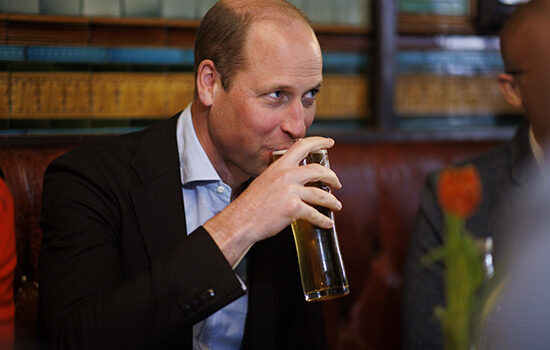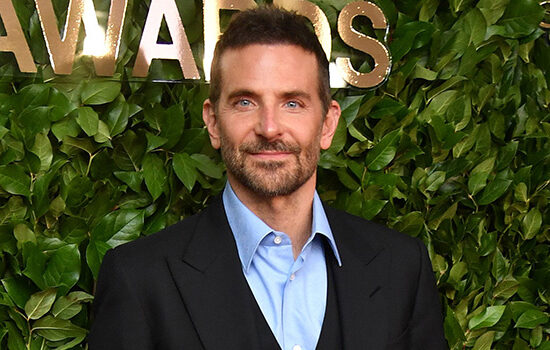
After convincing the majority of the population that the war was necessary to “liberate” Ukrainians from “Nazis,” state television propagandists are now doggedly preparing Russians for a long war, ominously warning that it might end in nuclear war.
In Ukraine, that means more civilian casualties, bombed houses and dozens of soldiers killed daily defending the country’s east.
Russian hardships may be trivial by contrast, but the deadening gloom of a long war worries the Kremlin, according to analysts, because of the challenge of dragging the population along as sanctions bite, businesses retrench, prices continue to surge, and it dawns on people that life may never go back to the way it was.
But the old Kremlin playbook, accusing the West of plans to gobble up Russia, is working so far. Denis Volkov of independent polling agency Levada-Center said the latest polling for April showed almost half of Russians unconditionally support the war and about 30 percent support it with reservations, with 19 percent opposed. Many in focus groups saw it as an existential confrontation with the West, not Ukraine.
“People explain that a significant part of the world is against us and it’s only Putin who hopes to hold onto Russia, otherwise we would be eaten up completely. To them it is Russia that is defending itself,” he said.
The conflict, however, is taking a toll on Russians like Marina, 57, a language teacher, whose friends are so weary of the war, they avoid the topic. She succeeded in changing the minds of a few friends and relatives who supported the war. “But in general, it seems everyone is sick and tired of the war or special operation. People have their own problems and the main problem is survival, especially with the rising prices.”
Marina acknowledged that few Russians are opposed to the war and most are finding a way to “get by somehow.” But she added: “This ‘somehow’ is becoming boring. Most people got tired of it. I want to travel. Others want to be able to plan. We want to get back to our ordinary lives.”
Marina can’t help dreaming wistfully of her old life — just a few months ago. “I want to be able to watch Western movies on Netflix and shop at Uniqlo. I want to travel to Europe on affordable and reliable airlines. I want to be part of the world and not an outcast,” she said.
Many people, still in denial, are struggling to adapt, said Grigory Yudin, professor of political philosophy at the Moscow School of Social and Economic Sciences. “The natural question for Russians is not whether I support it or not — nobody asks you, actually — but how do I adapt to this?”
People want certainty about their incomes, travel plans and mortgages. Part of the Moscow elite, including middle-ranking bureaucrats who feel they are Europeans, are not happy about the war, he said, but tend to believe Putin will fight until he wins.
“I think the majority of Russians still honestly believe that this is going on with military success, or at least this is what people want to believe,” Yudin said. He added: “The more-educated people who are more informed and tend to consume information from different sources are not that certain about that. They have significant doubts.”
Volkov said the latest polling showed interest in watching news about the war is beginning to wane, with people in focus groups wishing their lives could go back to the way they were.
“The best scenario is for this to end as soon as possible and then we hope things will go back to normal,” said Ksenia, 50, a bookkeeper at a firm that sells foreign materials and has been hard hit by Western sanctions.
Most of her work colleagues began strongly supporting the war, but lately they avoid the subject, except to complain that ordinary people in Russia always pay the price of government decisions.
“My colleagues have finally started to realize that things are not great. In general, we try not to discuss it because we start to fight. They’re saying, ‘We didn’t start this war and now we have to pay.’”
Her plan to vacation in the United States or Italy this summer is ruined because she cannot get a visa.
“Now I feel as if there’s no future and it’s very depressing.” She ached when McDonalds’ golden arches were removed not for any love of the burgers or fries, but for the idea it represented.
“I’m really upset about McDonald’s, and I really mean it. McDonald’s has always been a symbol of freedom for me. I remember when the first McDonald’s opened in Moscow,” she said recalling the queues in 1990s months before the Soviet Union collapsed. “It felt like the light at the end of the tunnel.”
For Ksenia and friends opposed to the war, the worst part is thinking of the Ukrainian civilians, including children, being killed and the women raped by Russian soldiers.
“I can survive without certain clothes. And I think I can survive without Western movies. But the main problem for me is that now Russians are outcasts, with whom nobody will want to shake hands. Psychologically, it’s really hard for me to feel that I’m unwanted everywhere.”
Viktor, a 35-year-old carpenter, says his small business has lost most of its clients, as they’ve been forced to economize. He cannot finish building his own house because he says prices for building materials doubled while his income halved.
Viktor thought war would rage about two months. “Now it will take years, and it’s a disaster. It’s not only losing lives. In the years to come we will be living in poverty and we will be hated again like the fascists in Germany in World War II — like we are the new fascists.”
But 43-year-old Andrei from Moscow sees the war as “God’s plan” and believes Russians are willing to make sacrifices to see it through. A yoga-loving, vegetarian computer programmer, he is not the typical elderly, conservative Putin supporter. He gets his news from one pro-Kremlin blogger and shares a common Russian conviction that Western news of Russian war crimes is “fake.” He declined to give his surname.
“The idea is to remove fascism from Ukraine and to return the civilians who want to live in the U.S.S.R., like before the ’90s,” he said echoing the propaganda.
“Right now we don’t feel any meaningful impact from sanctions,” he added, although many of his friends in IT have fled for Armenia and elsewhere, and he can no longer afford to buy a beloved MacBook computer. Nor can he purchase the new Mazda 6 he had his eyes on; he had been hoping pay about 2 million rubles — five months’ salary — but the price went up to 3 million.
Andrei is convinced that Russia will win the war in a year or so, prices will fall and Apple products will find their way to Russia via the black market. Until then, he says he’ll make sacrifices (but not volunteer to fight.)
“Western people like comfort, they need comfort,” he said. “Russian people may have comfort, or they may not. This is not a problem.”
Political analyst and journalist Fyodor Krasheninnikov said many Russians hope that Ukraine would soon capitulate to Russian military power. “The mood in Russia now is that ‘We want this to be over as soon as possible because we just can’t live like this any longer. We want to get back to normal life,’” he said.
“It’s not that people really like what Putin does,” he continued. “No, but they feel frustration and depression because they cannot change anything. It’s like bad weather. They realize that it’s going to rain every day. But what can they do about it?”













